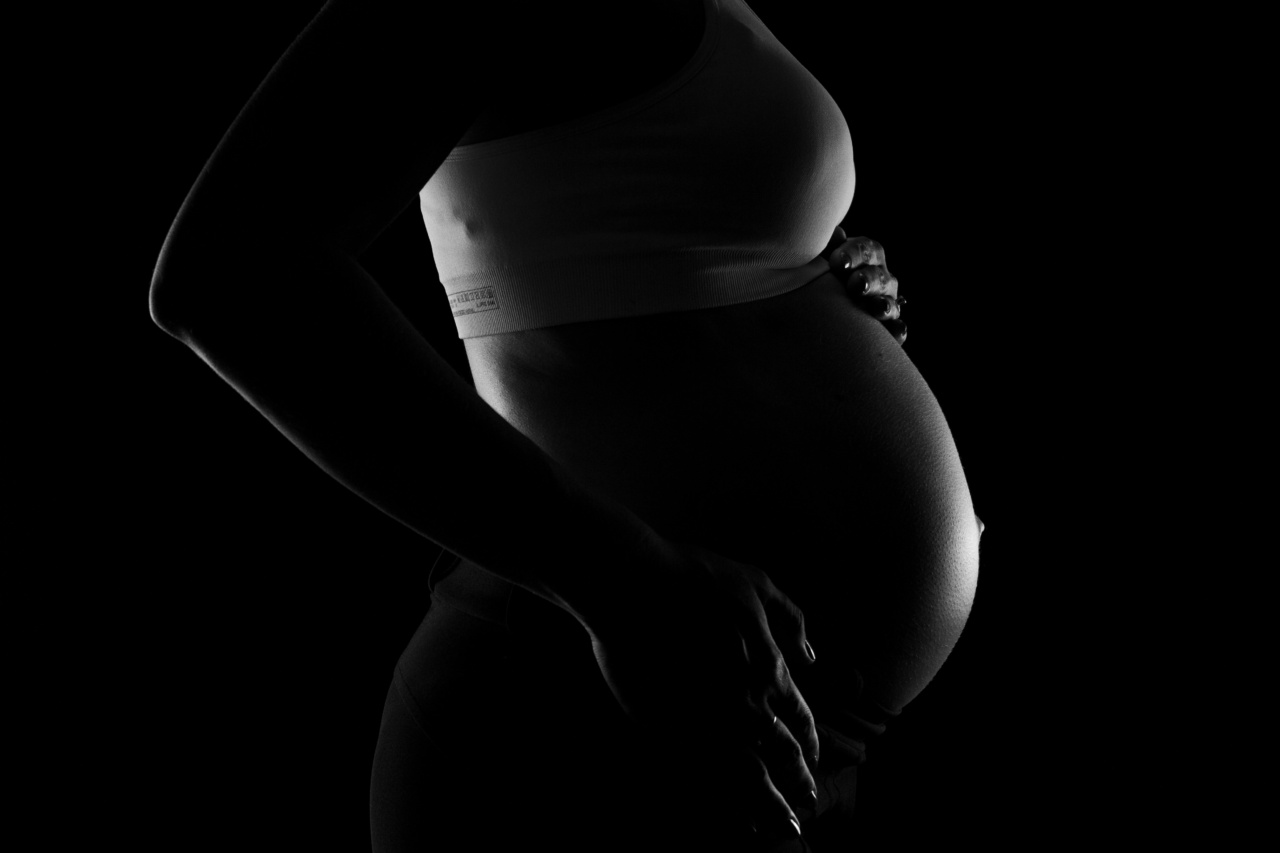Pregnancy is an incredible journey filled with physical and emotional changes. As a woman progresses through each week, her body goes through various transformations to accommodate the growing baby inside her.
Week 21 is a significant milestone in pregnancy, marking the halfway point and bringing about new experiences and adjustments for expectant mothers. In this article, we will explore the changes that women typically undergo during this stage of their pregnancy.
Physical Changes
In week 21, the baby bump becomes more prominent as the uterus continues to expand. Women tend to feel heavier and experience discomfort in their lower abdomen due to the growing size of the baby.
The round ligaments that support the uterus stretch to accommodate the expanding uterus, causing occasional cramping and sharp pains.
Additionally, the breasts continue to increase in size and may become even more sensitive and tender. Hormonal changes lead to increased blood flow to the breasts, preparing them for lactation.
Some women may also notice the appearance of stretch marks on their abdomen, breasts, and hips as the skin stretches to accommodate the growing baby.
Increased Energy
Many women find that they experience a surge in energy during the 21st week of pregnancy. The fatigue and morning sickness that commonly accompany the first trimester tend to alleviate, leaving expectant mothers feeling more energetic and capable.
This newfound energy can be utilized to prepare for the arrival of the baby, such as setting up the nursery or attending prenatal classes.
Weight Gain
By week 21, women typically gain around 12-15 pounds on average. However, it’s important to note that weight gain varies from person to person and can be influenced by factors such as pre-pregnancy weight, metabolism, and overall health.
It’s essential for expectant mothers to follow a balanced and nutritious diet to support the healthy growth of the baby while also ensuring their own well-being.
Back Pain and Posture Changes
As the baby bump grows, it can put strain on a woman’s back and affect her posture. The center of gravity shifts, leading to a more pronounced lower back curve and an increased risk of backaches.
Engaging in gentle exercises, practicing good posture, and wearing supportive shoes can help alleviate back pain and maintain a healthy posture during this stage.
Braxton Hicks Contractions
Braxton Hicks contractions, also known as “practice contractions,” may become more frequent and noticeable during week 21. These contractions are the body’s way of preparing for labor and are typically irregular and painless.
However, some women may experience discomfort or mild cramping during Braxton Hicks contractions. Staying hydrated, changing positions, and practicing relaxation techniques can help manage these contractions.
Mood Swings and Emotional Changes
Hormonal fluctuations continue to impact a woman’s emotional well-being during week 21 of pregnancy. Mood swings, increased sensitivity, and heightened emotions are common during this time.
Some women may also experience anxiety or nesting instincts as they prepare for the upcoming arrival of their baby. It’s important for expectant mothers to communicate their feelings and seek support from their partners, friends, or healthcare providers.
Fetal Movements
By week 21, most women start feeling the baby’s movements. These early movements, also known as “quickening,” may feel like gentle flutters, bubbles, or popcorn popping.
Women often describe this sensation as a reassurance that their baby is growing and developing as expected. Feeling these movements can create a stronger bond between the mother and baby.
Sleep Disturbances
As the baby bump grows, finding a comfortable sleeping position becomes more challenging.
Many women experience difficulties in getting a restful night’s sleep due to increased need for bathroom breaks, leg cramps, heartburn, or simply finding the right position. Using additional pillows for support, establishing a relaxing bedtime routine, and avoiding stimulating activities before sleep can help improve sleep quality.
Changes in Hair and Skin
Hormonal changes during pregnancy can affect the hair and skin. Some women experience thicker, shinier hair due to increased levels of estrogen. However, others may notice excessive hair shedding after giving birth.
Skin changes such as acne, darkening of the skin (chloasma), and a linea nigra (a dark line that forms down the center of the abdomen) may also occur. Adapting a gentle skincare routine and consulting with a dermatologist can help manage these changes.
Preparing for Time Off Work
For women who are employed, week 21 is an opportune time to start planning for maternity leave. Understanding maternity leave policies, completing necessary paperwork, and coordinating with colleagues can help ensure a smooth transition.
It’s important for expectant mothers to communicate their needs and discuss work arrangements with their employers well in advance.
Conclusion
Week 21 of pregnancy brings about a myriad of physical and emotional changes. As the baby bump grows, women may experience increased energy, weight gain, back pain, and hormonal fluctuations.
Feeling the baby’s movements can create a deeper bond and excitement for expectant mothers. It’s crucial for women to take care of their physical and emotional well-being during this time by practicing self-care and seeking support when needed.
Every woman’s pregnancy journey is unique, and embracing these changes is a part of the beautiful experience of bringing a new life into the world.






























